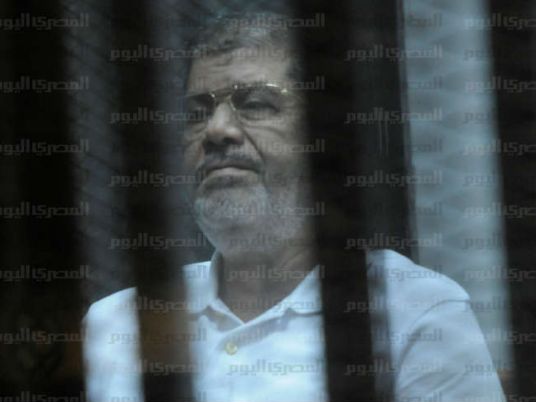President Mohamed Morsy announced a state of emergency in Port Said, Suez and Ismailia Sunday for 30 days, along with the imposition of a curfew from 9 pm to 6 am in a move to ease the escalation of violence in the cities, which since Friday have witnessed clashes that have killed at least 47 people.
In a speech broadcast live on state TV, Morsy said he made these decisions after reviewing the Constitution, and that while he does not want to take extraordinary measures, he has been forced to do so, given the situation.
He added that if violence continues, he would be forced to take stricter measures to protect the country.
This is the first time for Morsy to take such measures, particularly the state of emergency, which will be enforced starting at midnight.
Egypt was ruled under an emergency law for 30 years under ousted President Hosni Mubarak. The state of emergency gives police ultimate powers to question or detain citizens and was seen as a tool of Mubarak’s repression. The military council that ruled the country during its post-revolution transition lifted the law in May 2011.
Morsy’s speech was the first since the outbreak of four days of violence. He had previously sent a series of messages over Twitter, and appeared on state TV Saturday during his meeting with the National Defense Council.
Addressing the nation, Morsy said: “Great Egyptian people, Egypt has lived critical times in the past few days, with the expensive blood of its sons being shed, and public installations assaulted behind the back of noble demonstrations of the glorious 25 January revolution.”
“Unfortunately, we saw a deviation from the peacefulness of the revolution, and martyrs fell at sinful hands tarnishing the nation and infringing on the security of citizens,” he said.
Clashes in cities such as Cairo and Suez stemmed from protests against the Muslim Brotherhood for the 25 January revolution’s two-year anniversary Friday, while in Port Said, demonstrators protested a court verdict that recommended the death sentence for 21 people convicted of involvement in last year’s football violence.
Morsy called for dialogue with political groups Monday, adding that the details about the agenda for the dialogue would be later announced by the presidency. Morsy last called for such dialogue in December, when he faced fierce opposition to decrees he issued in November that extended his powers.
But most secular groups refused to join the December dialogue, saying the president’s office should have made assurances that the outcome would be implemented.
In his speech, Morsy denounced violent acts, stressing the right for the police to defend state institutions.
He said scenes of violence, road block and armed assault “have nothing with the revolution,” calling these acts of the “counter-revolution.”
He concluded by expressing his condolences to the families of those who lost their lives among both police and protesters, especially in Suez and Port Said. He said those two cities have led the Egyptians’ struggle previous difficult years, steadfastly shattering brutal attacks, and teaching patriotism to the world and generations to come, as he put it.

